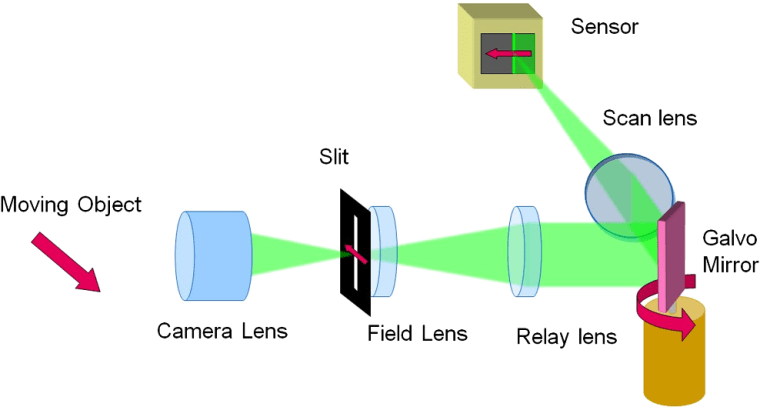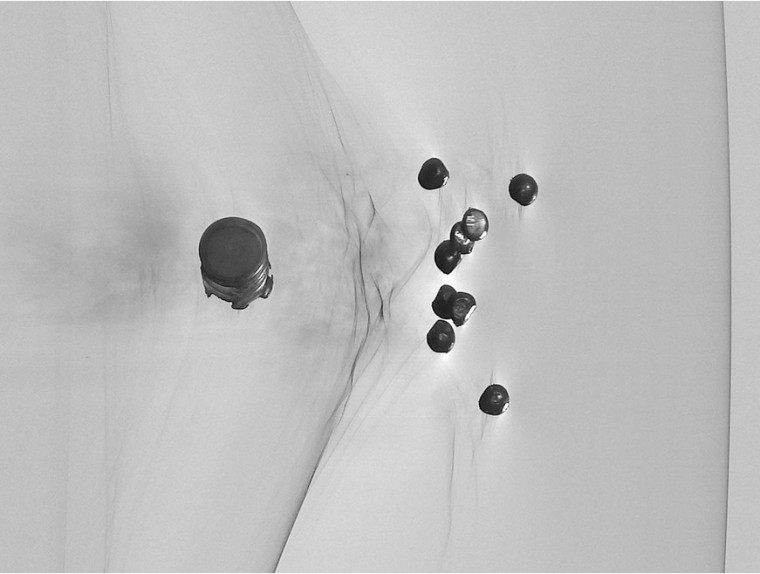The striking photographs of bullets flying through the air that we've all seen can be done with a good flash setup, but what if you need to capture something going thousands of miles per hour? A new twist on an old method could empower common digital cameras to do just that.
Researchers from a Californian company called MetroLaser have put together a high-speed camera rig based on the principle of "streak photography" — similar to what scientists used to effectively capture a burst of light at a trillion frames per second.
It works like this: the light from the subject passes through a super-narrow slit, and as it moves by, a precisely controlled mirror and lens setup shifts to match the object's motion, sending a changing "slice" of the image to the sensor. The full image is assembled from all this data, and the result is what you see above: sharp as a tack, with the motion of the air captured as well.

The system was commissioned by the Air Force, which needs such cameras for testing rockets and projectiles on high-speed tracks. In fact, capturing a bullet in flight is a piece of cake for the digital streak camera; it was built to be able to snap a picture of something going 10 times as fast — up to 3,350 meters per second, nearly 7,500 miles per hour.
And the best part is it doesn't require some exotic high-powered sensor. It can be set up to work with an off-the-shelf camera and an ordinary computer — there would be some customization involved, of course, but it's better than paying hundreds of thousands of dollars to design a special single-purpose device.
More information and images of the setup can be found in the paper itself, which appeared last week in the journal of the Society of Photo-Optical Instrumentation Engineers.
— via PetaPixel
Devin Coldewey is a contributing writer for NBC News Digital. His personal website is coldewey.cc.
